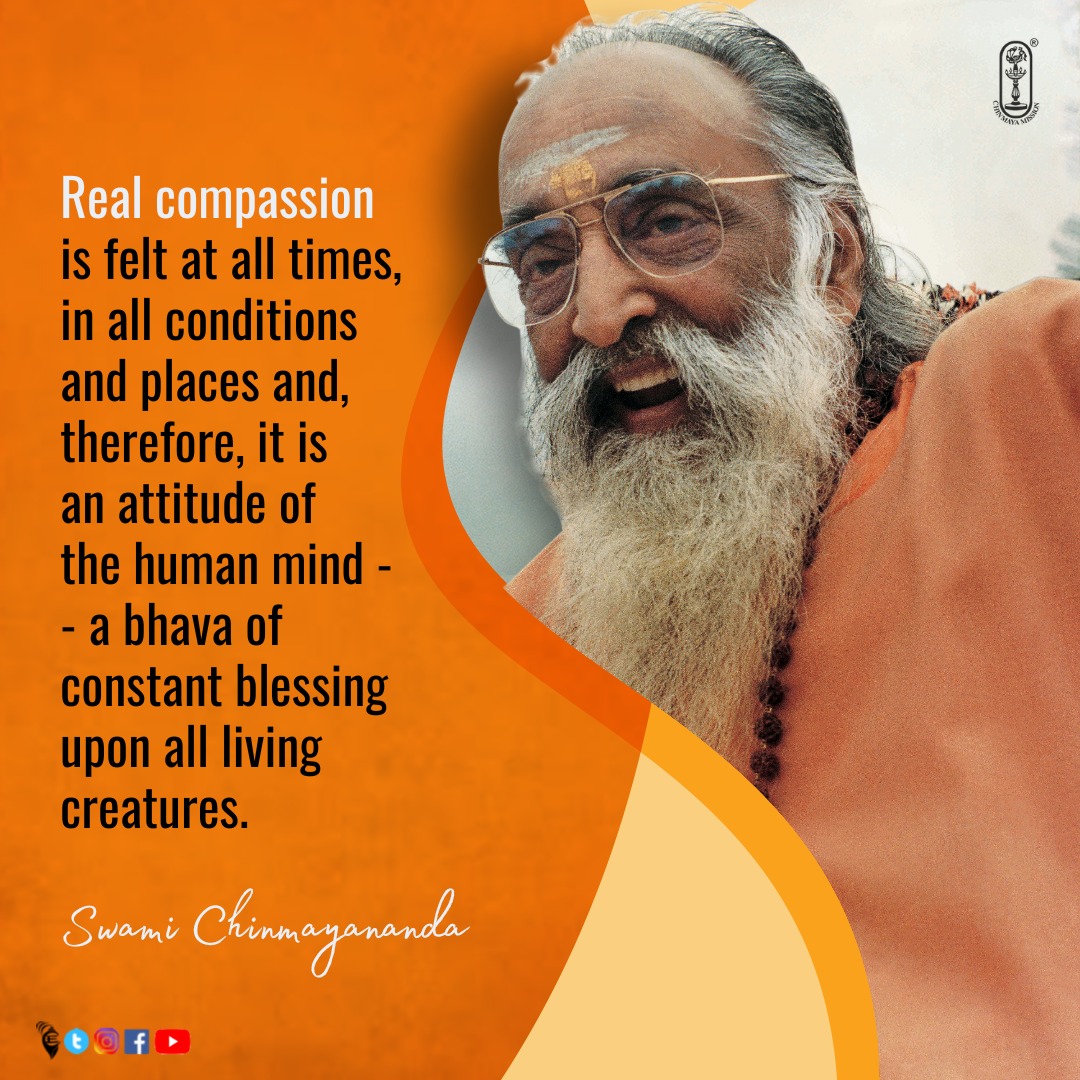Ancient Culture ( Samskaram ) of India ( Bharatham ) - 13. Swami Krishnananda.
========================================================================
========================================================================
1.#Opinion : Friday, December 09, 2022. 06:45. 2917. //
2.#Chapter 7: The Message of the Mahabharatam.-4.
Post-13.
========================================================================
God sees all these things. With millions of eyes, God knows what is happening in the world. He knows what is proper, what is improper, who is just, who is not just. But mostly what happens is that God's mills grind slowly. They say God takes action very, very slowly. We do not know why He should take action so slowly. God's way of doing things is compared to the way of a lion. A lion is very powerful. It lies down somewhere in a corner, and if children pelt a stone at it, it might not mind because it knows its strength. The stronger we are, the less we mind interference from people. The weaker we are, the more do we rise up and show our vehemence. As the lion knows its strength, why should it bother? It will simply keep quiet. Even if we pelt stones at it, it will not get up at all. But once it gets up and is on its feet, no one can stand before it.
God is like that. If we have some problems, He will see that the problems continue. Let them go on for some time. And if we have greed for pleasure or any kind of desire, He will allow us to have that for a long time, to learn by experience. But there comes a moment when He will no longer tolerate it, and that is when the circumstances of the world go totally against the law of God. Sometimes little things in the world go against the law of God but they are tolerated, and God gives us a long rope.
Sri Krishna was the mighty Incarnation of Bhagavan Vishnu, Narayana, who came to redress the world of all its sorrows. But he did not interfere with these skirmishes in the family of the Pandavas and the Kauravas. Dice play was going on, the family feud was increasing, the Pandavas were suffering in the forest for thirteen years. Why did Sri Krishna not come and talk to them? He could have ended the whole thing in one minute, if he wanted to, but he never took cognisance, as it were, of even the thirteen years of suffering of these boys. When the thirteen years were over, Krishna came with a large group of his friends to the city of King Virata, where the Pandavas were living incognito. Then conferences took place as to what the next step should be.
The person who spoke first was Sri Krishna. “A lot of suffering has been endured. The Pandavas, innocent children, have lost all their kingdom. Their share is due. In dice they lost everything, and the thirteen years of being away, as stipulated, is over. Now their share has to come. But how it will come? We will send a messenger to the Kaurava princes that the share of the Pandavas is due and it has to be given.”
Some messenger was sent, some young Brahmin, and whatever message he conveyed from the side of the Pandavas was rebutted with vehemence by Duryodhana who said, “Nothing doing. Go home. Go from here!” The messenger did not succeed. Then Sri Krishna suggested that some suitable person be sent to speak properly and place their case exquisitely.
“Who will go?” asked Yudhisthira.
Sri Krishna said, “Why are you asking that? I am here as your servant. If you want, I shall go, taking your message.”
Yudhisthira said, “I will not send you. You are our beloved heart, our soul. You are our friend, philosopher and guide. Will I risk your life in the midst of the wolves who are the Kauravas?”
Sri Krishna replied, “I am glad that you are so concerned about my welfare, but you need not be afraid. Let them be wolves. If they are wolves, I shall be a lion, and if they do anything mischievous, I shall end them and come.” With these words, he departed.
*****
To be continued
========================================================================









Comments
Post a Comment